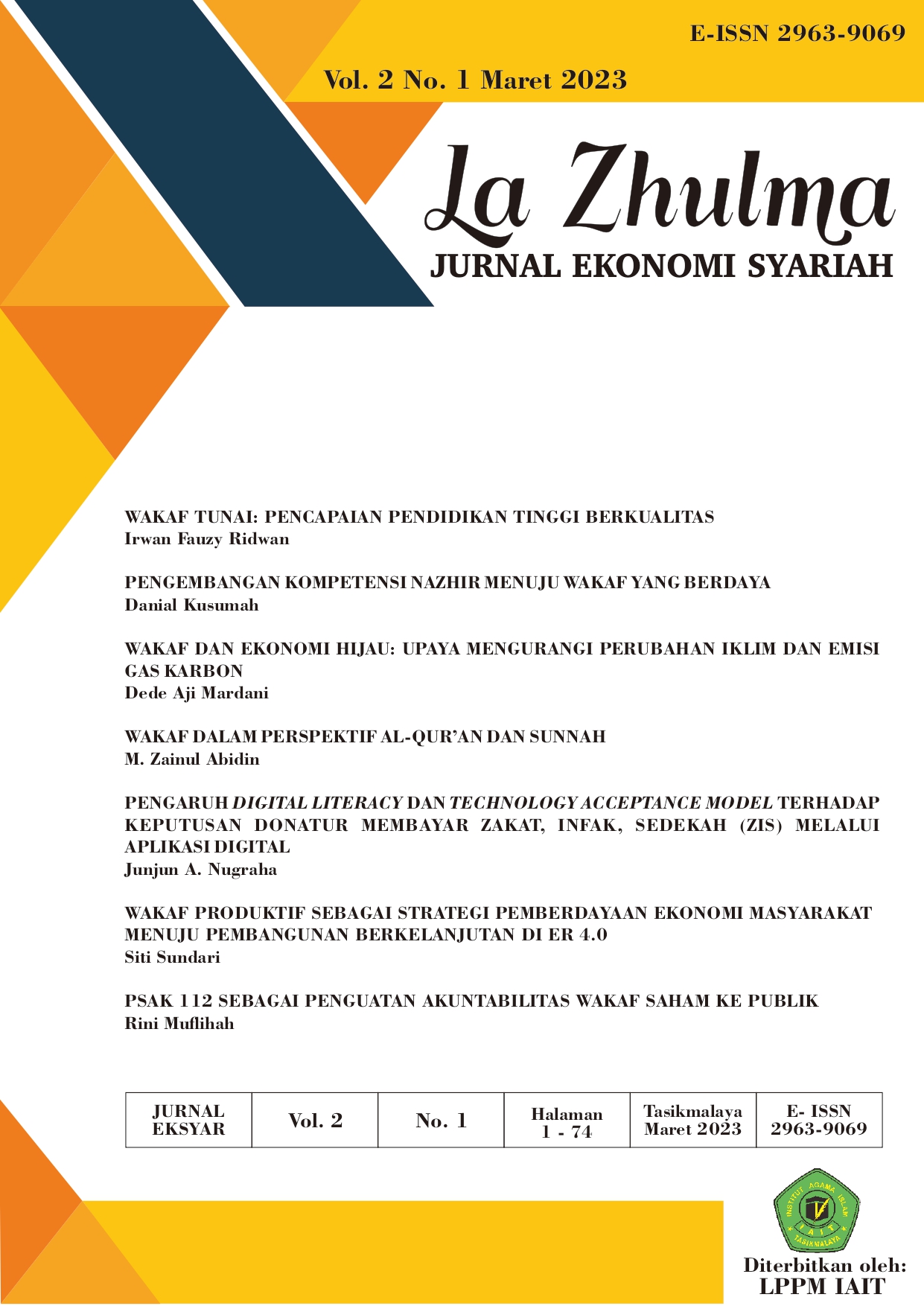Wakaf dalam Perspektif al-Qur’an dan Sunnah
Keywords:
Waqf, Philanthropy, Qur'an, SunnahAbstract
Waqf is one of the pillars of Islamic philanthropy that has been practiced since the early days of Islam. The
Prophet and his Companions were pioneers in this regard. He encouraged and even directly set an example for
the Companions by donating some of their wealth from the fai'. In Indonesia, waqf has also become a significant
source of public funding. Waqf has great potential to alleviate poverty and improve the welfare of the people in a
sustainable manner, because waqf assets are long-term, not limited by time. The enormous potential of waqf
encourages researchers to conduct research on the concept of waqf, by exploring it directly through two
authoritative sources in Islam, namely the Qur'an and Sunnah. This research is a literature research using the
method of maudhu'i interpretation (thematic interpretation study) and takhrij hadith. The maudhu'i interpretation
method is used to explore information deeply and holistically from the Qur'an. While the takhrij hadith method is
used to obtain valid and comprehensive information from the hadith. The results show that the law of waqf
according to the majority of scholars is mandub (sunnah). This is based on the shara' arguments from the Qur'an,
Sunnah, and Ijma' that indicate the recommendation to endow. Waqf was widely practiced during the time of the
Prophet, both by himself and his companions. The virtues of waqf are very great as stated by the Prophet, both in
the Qur'an and Sunnah. Among the virtues of waqf for people who do waqf are: (1) Glory in heaven, (2) Multiplied
rewards, as well as forgiveness from Allah, and (3) Rewards that will continue to flow beyond the limits of the
world.



